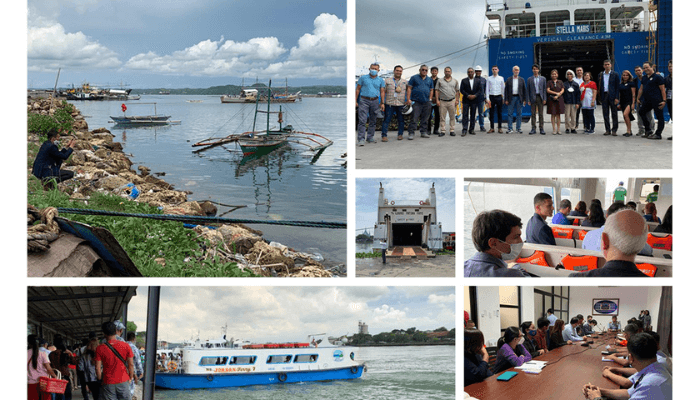IMO has contributed to the next steps to enhance safety and energy efficiency of domestic passenger ships in the Philippines. A team of experts* undertook a field visit to Manila, Iloilo and Cebu, the Philippines (3-9 July) to see up close how the safety system in the Philippines operates.
The team were able to observe and understand actual operations of domestic passenger ships and their interface with port operations and the regulatory authorities. They were also able to scrutinize the different types of passenger ships which operate in the Philippines, particularly the traditional wooden bancas and redesigned and modernized Fibre Reinforced Plastic (FRP) boats.

Meetings were held with officials from the Maritime Industry Authority (MARINA); the Philippine Ports Authority (PPA); the Philippine Coast Guard (PCG); and faculty members the University of Cebu and the University of the Philippines to see how to build local expertise.
The field visit identified the need:
- for support to create databases for the registration of ships, for the storage of data on safety inspections, and for accident investigation, among others.
- to study the ship design of the banca and see how to make it safe and fit for purpose.
- to look into the design of modernized banca boats.
- to improve capacity for accident investigation and make use of the lessons learned from these investigations to improve safety.
- for capacity building for the preparation, implementation and enforcement of safety regulations.
- to build local expertise, particularly on maritime safety.
The field visit was the next step in a year-long US$354,250 project funded by the World Bank Group (WBG), the International Finance Corporation (IFC) and IMO’s Integrated Technical Cooperation Programme (ITCP).
* Maritime safety and energy-efficiency consultants; specialists from the World Bank; and the IMO Regional Coordinator for East Asia
Reference: IMO